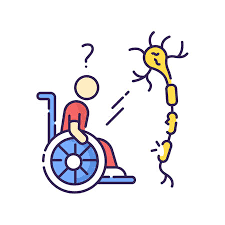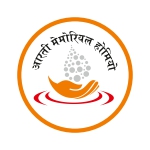
Motor Neuron Disease (MND)
Motor Neuron Disease (MND), from a homeopathic perspective, can be addressed by stimulating the body's own healing mechanisms, as homeopathy focuses on treating the root cause of disease and restoring balance within the body. Dr. Rajeev Maurya’s approach would likely involve the use of specific remedies tailored to the individual’s symptoms, constitution, and overall health condition.
Homeopathic Approach to MND by Dr. Rajeev Maurya
Customized Treatment: Every patient’s case is unique in homeopathy. Dr. Maurya would likely evaluate the patient's physical, emotional, and mental health to prescribe the most suitable remedy.
Holistic Care: Homeopathy treats the person as a whole, rather than just focusing on the symptoms. Dr. Maurya would take into account all factors contributing to the progression of MND, including stress, diet, lifestyle, and emotional health.
Lifestyle and Dietary Advice: Dr. Maurya would likely provide guidance on dietary modifications, possibly emphasizing foods that support nerve health, as well as recommending exercise and relaxation techniques to manage stress, which can aggravate neurological conditions.
Supportive Treatment: Since MND is a progressive disease, Dr. Maurya’s treatment might also include management of secondary symptoms such as breathing difficulties, speech problems, and digestive issues. Homeopathy, being gentle, can help ease discomfort and improve the quality of life.
Motor Neuron Disease (MND) refers to a group of progressive neurological disorders that affect motor neurons, the nerve cells responsible for controlling voluntary muscle activity, such as speaking, walking, breathing, and swallowing. In MND, these motor neurons gradually degenerate and die, leading to muscle weakness, atrophy, and loss of control over voluntary movements.
Treatment
Currently, there is no cure for MND, but treatments can help manage symptoms:
- Medications like Riluzole to slow the progression of ALS.
- Physical therapy to maintain mobility and muscle strength.
- Speech therapy to assist with communication issues.
- Nutritional support to address swallowing difficulties.
- Breathing support as the disease progresses.
Types of MND
- Amyotrophic Lateral Sclerosis (ALS): The most common form, also known as Lou Gehrig's disease. It affects both upper and lower motor neurons, leading to weakness and muscle wasting.
- Progressive Bulbar Palsy (PBP): Affects the muscles involved in speaking, swallowing, and chewing.
- Primary Lateral Sclerosis (PLS): A rare form that only affects upper motor neurons, causing muscle stiffness and weakness.
- Progressive Muscular Atrophy (PMA): Affects lower motor neurons, leading to muscle weakness and wasting.
Symptoms
- Muscle weakness and wasting
- Difficulty speaking, swallowing, and breathing
- Muscle cramps and twitching
- Stiffness and slurred speech
- Emotional and cognitive changes (in some cases)
Causes
While the exact cause is often unknown, a combination of genetic and environmental factors is believed to contribute to MND. Some cases are inherited, while others may be sporadic.
Diagnosis
Diagnosis typically involves a combination of tests, including:
- Electromyography (EMG): To assess the electrical activity in muscles.
- Magnetic Resonance Imaging (MRI): To rule out other conditions.
- Genetic Testing: In cases of suspected hereditary forms of MND.
- Clinical Assessment: To monitor the progression of symptoms.
